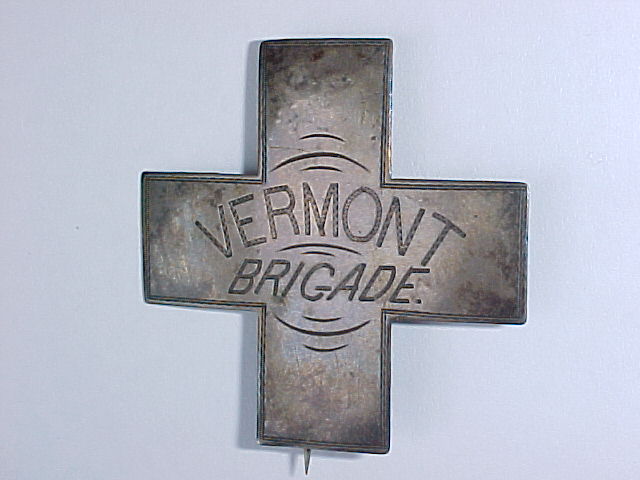“Life Given, Not Lost”: Captain Morey’s Final Charge—Part One
We are happy to welcome guest author Edward Alexander. Edward Alexander is the Education & Interpretation Specialist at Pamplin Historical Park in Petersburg, Virginia. A 2009 graduate of the University of Illinois, he has also worked with Fredericksburg & Spotsylvania National Military Park and the Illinois Department of Natural Resources. (part one of three)

“He that loseth his life for my sake, shall find it,” began Reverend John H. Edwards to the Congregational Church in West Lebanon, New Hampshire. Friends and family gathered May 14, 1865, to remember Captain Charles Carroll Morey, who still lay in a makeshift grave 520 miles to the south in Virginia, resting “now beneath the fresh springing grass in front of Petersburg.” Edwards titled his sermon, “Life Given, Not Lost,” capturing the selflessness that characterized the beloved soldier. Popular among his regiment, Morey wrote many letters home, often including photographs of his comrades with instructions to his parents to save them with hopes that the compilation could serve as mementos to the fond acquaintances and lasting inspirations he met.
Responding to President Abraham Lincoln’s call for volunteers at the outbreak of the American Civil War, twenty year old Charles Morey enlisted as Corporal into the Second Vermont Infantry on April 22, 1861. A veteran of many campaigns, Morey often found himself eulogizing his comrades, recognizing, “there is a little feeling left in the heart although we have become accustomed to scenes of violence and blood.” After Sergeant George E. Allen’s accidental drowning following the Seven Days’ Battles, Morey wrote, “He was always at his best in time of danger and did not fear to sell his life dearly if necessary in the cause in which he was engaged.” Morey’s own tentmate, Private Frederick W. Chamberlin, fell dead at the Second Battle of Fredericksburg, May 3, 1863. “He was one of the best soldiers in the company,” remembered Morey, “and he came to his end in the line of duty defending that old flag which so proudly waves ‘ore [sic] the land of the free and the home of the brave.’” These incidents provided Morey examples to lead by as his responsibilities grew while combat intensified through the course of the war.
At Spotsylvania Court House, on May 12, 1864, at the famous “Bloody Angle,” Morey fought for nine straight hours, “we were terribly engaged, we charged on the enemy’s works but they would not leave and we fought with them on one side of the parapet and we on the other… our loss was terrible.” At one point while loading his rifle, he noticed, “while in the act of charging cartridge I saw a Reb who had got sight of me across his musket, and I assure you my legs grew very short… that is to say I dropped down out his sight just in time to hear his bullet whistle over my head.” Towards the end of the battle a spent ball struck Morey in the leg, but without enough momentum to do any damage. Stirred by these experiences, the following day he wrote his parents, “I don’t know what to say first but will praise God for his goodness in spearing [sic] my life while so many of our brave comrads [sic] have fallen victim to the enemy’s shots.” His confidence remained unshaken, believing that “we can whip the enemy and drive [him] out of Virginia.”
Before that could be accomplished, Morey himself had to leave the state for Washington, D.C., in reaction to Jubal Early’s July 1864 campaign which threatened the capital. After the Sixth Corps, in which Morey’s Second Vermont served, repulsed the Confederate attack at Fort Stevens, they joined the Federal Cavalry under Philip T. Sheridan the following month, turning their attention to the Shenandoah Valley. Sheridan wished to shut off this avenue of invasion as well as destroy the breadbasket of the Confederacy. At Charlestown, August 21st, another stray bullet struck Morey, now First Lieutenant, in the leg, this time forcing him to retire from the field to convalesce in a Baltimore hospital. Longing to return to his brothers-in-arms, Morey wrote, “I think it is wrong for one who is able to do duty to stay away.”
Earlier that summer when learning about his parents moving to a new house, Morey had expressed a belief that he “could be happy there… but as it is the war must be settled then I will come home and try to be content with a quiet citizens life.” The few months he was forced to spend away from his comrades, however, strengthened his new priorities and sense of belonging. “Once more I find myself with the regiment,” he wrote upon his return, “and feel as though I had got home.”
Ed! Good to see you as a guest author!
Nice article!